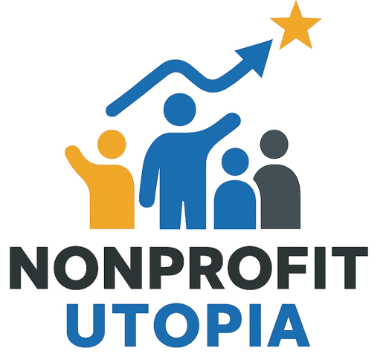You have just been invited to join a board of directors of one of the hottest local nonprofits in the city. What should you do before accepting?
1. Do some self-reflection. Being a member of a board is serious business. Unlike other volunteer assignments, being a board member carries with it fiduciary responsibilities. As such, the board is responsible for adopting sound, ethical, and legal governance and financial management policies, as well as by making sure the nonprofit has adequate resources to advance its mission. (Council on Nonprofits, 2018). Are you willing to commit the time, financial resources and access to your networks to contribute to the organization’s success? Realizing that you cannot be rewarded financially for your service to the organization, what are the benefits of joining the board? Are there additional leadership and management skills you can learn?
2. Ask to see copies of the organization’s board meeting minutes for the last year. This will give you a sense for what is going on with the organization; how they transact business and what is important to them. You should look to see if there are any issues that linger for months; whether votes are taken or decisions are made by consensus; whether there are quorums present, and get a sense for attendance levels. This will speak volumes about the levels of board member engagement, how the board makes decisions and whether or not the board is high-functioning or stagnant.
While organizations are not legally obligated to share the minutes, you should be concerned if the organization doesn’t allow you to inspect them, particularly if they have invited you to the board. As a board member, you will share liability for the organization’s activities, whether you are aware of what’s going on, or not. Ignorance is not a defense in the event legal action is brought against the board. You should be very reluctant to join any organization that hesitates or refuses to share minutes with prospective board members.
3. Ask to see copies of the organization’s financial statements, budgets and Form 990’s for the past 3 years. This will give a sense for the organization’s financial performance and priorities. Did the organization break even? Were there deficits? If there were deficits, were they significant? How did the organization respond? What is the overall trend in financial performance over the years? Are they getting financially stronger or weaker? Are board members being compensated? Are there any financial transactions between executive staff or board members and the organization (ie, loans, employment and contracts)? Are salaries in alignment with industry averages for similarly-sized organizations? Are there related entities? If so, look at their financials as well.
Follow the money. Where is it going? Which programs seem to be priority? Do these priorities mesh with the organization’s stated core values? Do they mesh with your own core values? Who are the highest paid employees? What are their salaries? How much money is being spent on programs versus salary and overhead? Who are the highest paid contractors? What are the contractors’ relationships with the board? Are board members being compensated? Are there any financial transactions between board members and the organization?
Look out for red flags. Common red flags include self-dealing, that is, board members being enriched at the expense of the organization; conflicts of interest; loans being made to board members; board members collecting salaries while the organization suffers deficits, etc. Organizations have lost tax-exempt status for engaging in practices that, collectively, benefit board members and executives to the detriment of serving the community they were created to help.
Organizations are required by the IRS to share Form 990’s for up to 3 years upon request. If the organization refuses to share this information, or if the forms have not been prepared, you should strongly consider not joining the board.
In this day and age, most nonprofits are experiencing financial challenges. You should know what those challenges are, and the organization’s plans to address the challenges before joining the board. You don’t want to join the organization, only to be blind-sided by actions on behalf of funders or regulators that could threaten current funding, legal standing or the very existence of the organization.
4. If you haven’t been engaged as a volunteer for the organization, ask for a site visit during times of operations and attend an event. Observing people in “their natural habitat” is one of the best ways to learn about them. If possible, arrange for brief conversations with program managers and a tour of the facility during your site visit . Reflect on your experiences. What was experience like? Were the people enthusiastic and knowledgeable? Did they seem genuinely enthusiastic about the programs, mission and vision, or did you get the sense that they were on their best behavior? Were questions answered candidly, or did they feel canned? When you walked through the facility, did you feel like you were a part of a going concern, or did it feel like a ghost town, with very little activity?
5. Make sure the organization has liability insurance and directors and officers insurance. As a member of the board of directors, you could also be held personally liable for damages in the event of a lawsuit against the organization. The liability insurance protects organizations against allegations that someone suffered bodily injury, property damage or various kinds of personal injury arising from the organization’s premises, operations or services, if applicable. Directors and officers insurance (D & O) protects board members in the event the organization is sued for wrongful acts, or mismanagement of the organization or its resources.
Are you grappling with decisions as to whether or not to join a board of directors? Or, do you have experience serving on the board of directors and have something you’d like to add to the list? Feel free to comment below. Better yet, why don’t you join the Nonprofit Utopia community to go deeper into these issues? Learn more here.
Valerie F. Leonard is an expert in community and organizational development, helping organizations build sustainable communities. She is the Founder of Nonprofit Utopia, the ideal community for emerging leaders, and host of the Nonprofit Utopia podcast. Valerie teaches courses in nonprofit management for the University of Illinois at Chicago’s Certificate in Nonprofit Management program. For further information, visit www.valeriefleonard.com and https://nonprofitutopia.mn.co




